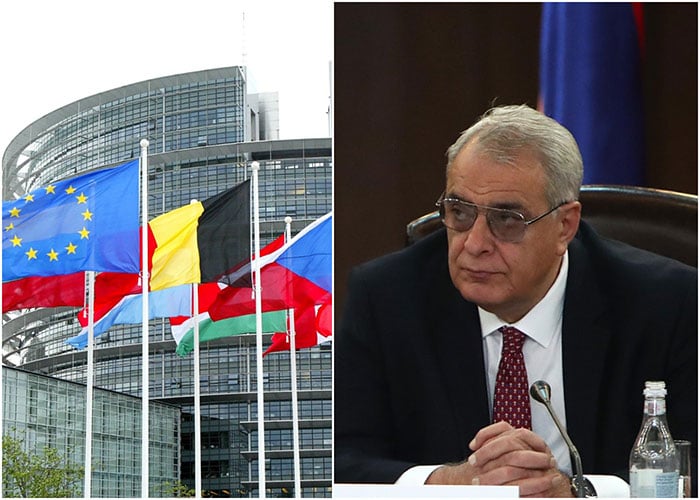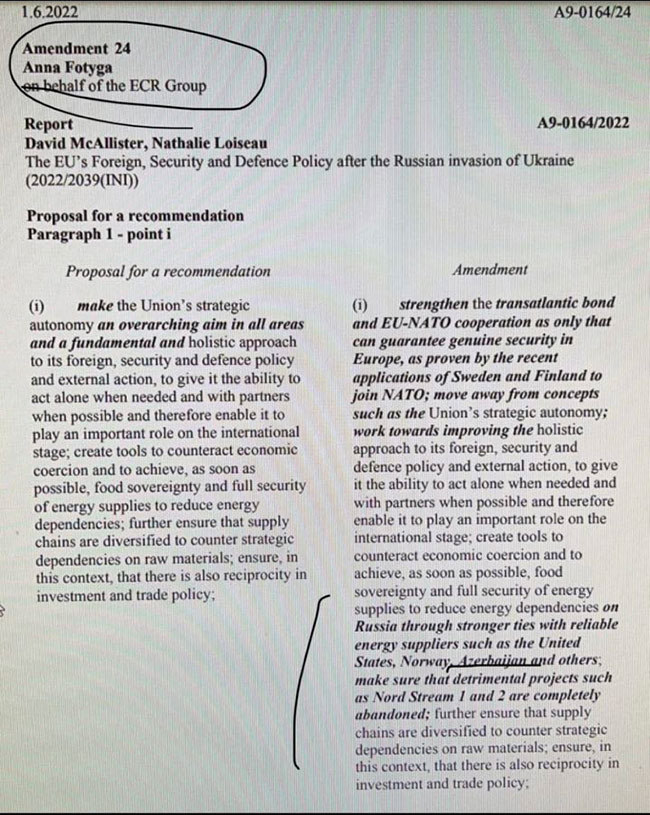For the fourth time in a year, the European Parliament addressed the issue of Nagorno-Karabakh, again rejected the efforts of official Baku and established Nagorno-Karabakh as a “disputed territory.”
On June 8, the European Parliament adopted a resolution in which it once again stated that the Nagorno-Karabakh conflict is not settled. Aravot turned to David Shahnazaryan to find out the details of how he managed to register quite significant successes in this authoritative international structure. He provided us with some details. In the European Parliament resolution of 8 June 2022 on security in the Eastern Partnership area and the role of the common security and defence policy, the European Parliament clearly states that the Nagorno-Karabakh conflict has not been settled. In addition to this wording, there are other important protocols in the resolution.
First of all, it was emphasized that the 44-day war was initiated by Azerbaijan, which led to a radical change in the status quo of the political, strategic, and operational situation in the south, with thousands of victims and tens of thousands of displaced people. As already mentioned, the resolution states that “skirmishes between Azerbaijan and Armenia continue to take place and the conflict of Nagorno-Karabakh has not been settled.”
David Shahnazaryan noted that, in fact, the European Parliament is referring to another resolution adopted on February 17 of this year, the European Parliament resolution on the implementation of the common foreign and security policy. Shahnazaryan recalled, “It was clearly notes that the OSCE Minsk Group remains the only internationally recognised format for the resolution of this conflict, on the basis of the principles of territorial integrity, non-use of force, self-determination and equal rights, and peaceful resolution of conflicts; calls for its swift return to its mediating role.”
Read also
David Shahnazaryan used the statement in the resolution adopted on June 8 that the European Parliament emphasizes the need for full exchange and release of prisoners and prisoners of war, as well as the provision of safe and free movement of civilians in Nagorno-Karabakh. With this point, the European Parliament reaffirms its resolution adopted on May 19, 2021, the European Parliament resolution on prisoners of war in the aftermath of the most recent conflict between Armenia and Azerbaijan, which demanded the return of all prisoners of war and other captive persons. The June 8 resolution also referred to the damage to the Nagorno-Karabakh gas pipeline on March 8 this year, and it is very important to emphasize that the European Parliament referred to Nagorno-Karabakh as “disputed territory – quote from the resolution “… the main pipeline to supply gas to Nagorno-Karabakh has been damaged and left the disputed territory without access to energy supplies …”.”
We also asked David Shahnazaryan to explain how this time, official Baku tried to counteract these developments that are favorable for Armenia. According to him, the political leadership of Azerbaijan, the officials of the Ministry of Foreign Affairs have made great efforts this time as well to thwart the favorable developments for the Armenian parties. It is known that the sittings of this session of the European Parliament were taking place in Strasbourg, and according to David Shahnazaryan, official Baku sent a large Azeri landing delegation to Strasbourg, as well as the head of the Azerbaijani representation in the EU, Ambassador Vagif Sadikov, arrived in Strasbourg from Brussels.
“Azerbaijan’s main goal was to remove the protocols from the resolution that the Nagorno-Karabakh conflict is not settled and that Azerbaijan is the initiator of the 44-day war in 2020, but this time too, Azerbaijan’s efforts have completely failed. Immediately after the adoption of this resolution, the European Parliament adopted another resolution related to the situation in Ukraine. The draft of this resolution, through the efforts of the Azerbaijani lobby, formally proposed an amendment to overemphasize Azerbaijan’s role in supplying energy bypassing Russia to Europe, by equating Azerbaijan with the United States and Norway. Azerbaijan’s efforts to accept this proposal also failed miserably. Baku’s proposal received a small number of votes, but it was rejected by an overwhelming majority of MEPs,” said David Shahnazaryan.
This proposal was made by Anna Fotyga, a well-known Azerbaijani lobbyist and member of the European Parliament (see a copy of the proposal).
To summarize, David Shahnazaryan said, “For the fourth time in the last year, the European Parliament addressed the Nagorno-Karabakh issue, twice of which, by adopting separate resolutions, as already mentioned above, the resolution on the prisoners of war of May 19, 2021, and the resolution on the destruction of cultural heritage in Nagorno-Karabakh, which was passed on March 10 of this year. Let me remind you that this resolution noted that Armenophobia, historical revisionism, and hatred towards Armenians is a systemic policy at the state level of Azerbaijan. This authoritative international body has addressed the Nagorno-Karabakh conflict four times in a year, which shows that the European Parliament has consistently and clearly stated its position. At the same time, these steps show the continuous failure of official Baku’s efforts in this authoritative international organization. These four resolutions of the European Parliament are a serious, powerful, effective, and solid systemic basis for state, political, public figures and experts defending the vital interests of the Republic of Artsakh in order to carry out large-scale, purposeful, and effective activities to strengthen Armenian interests in various international courts and meetings.”
Emma Gabrielyan






















































